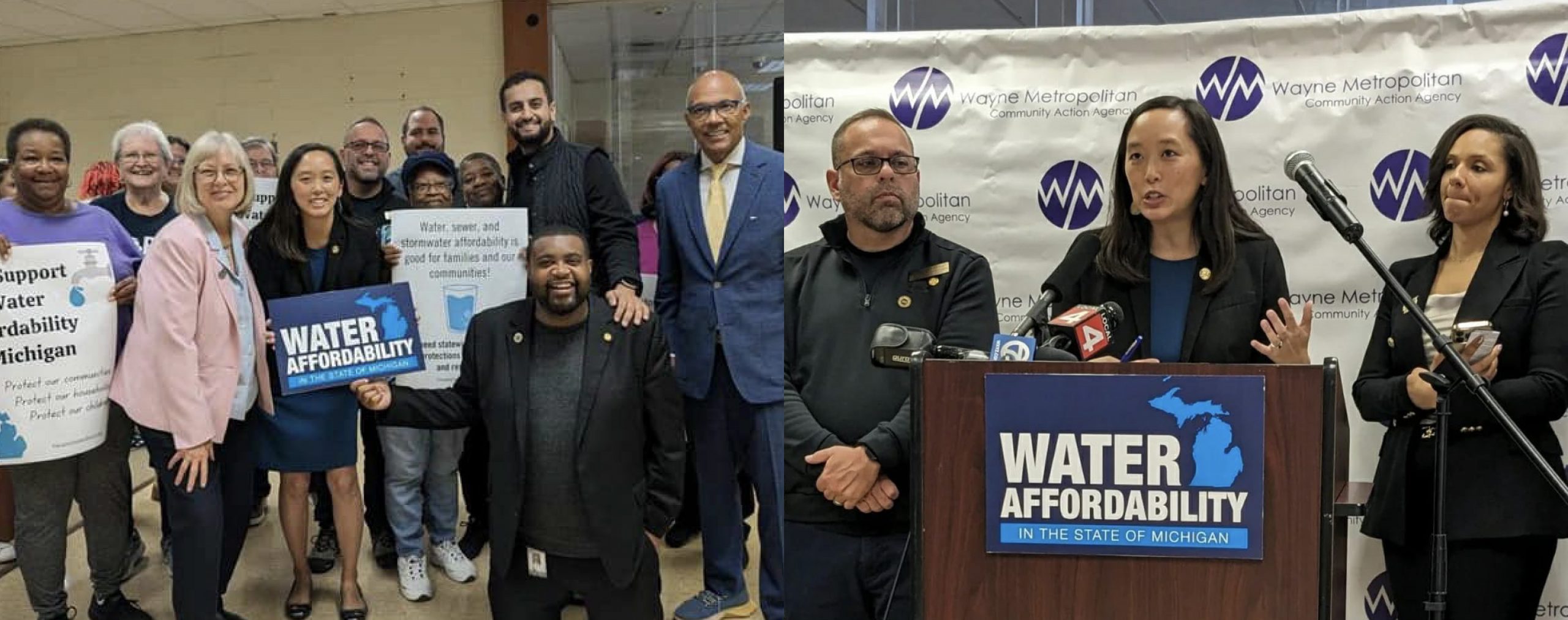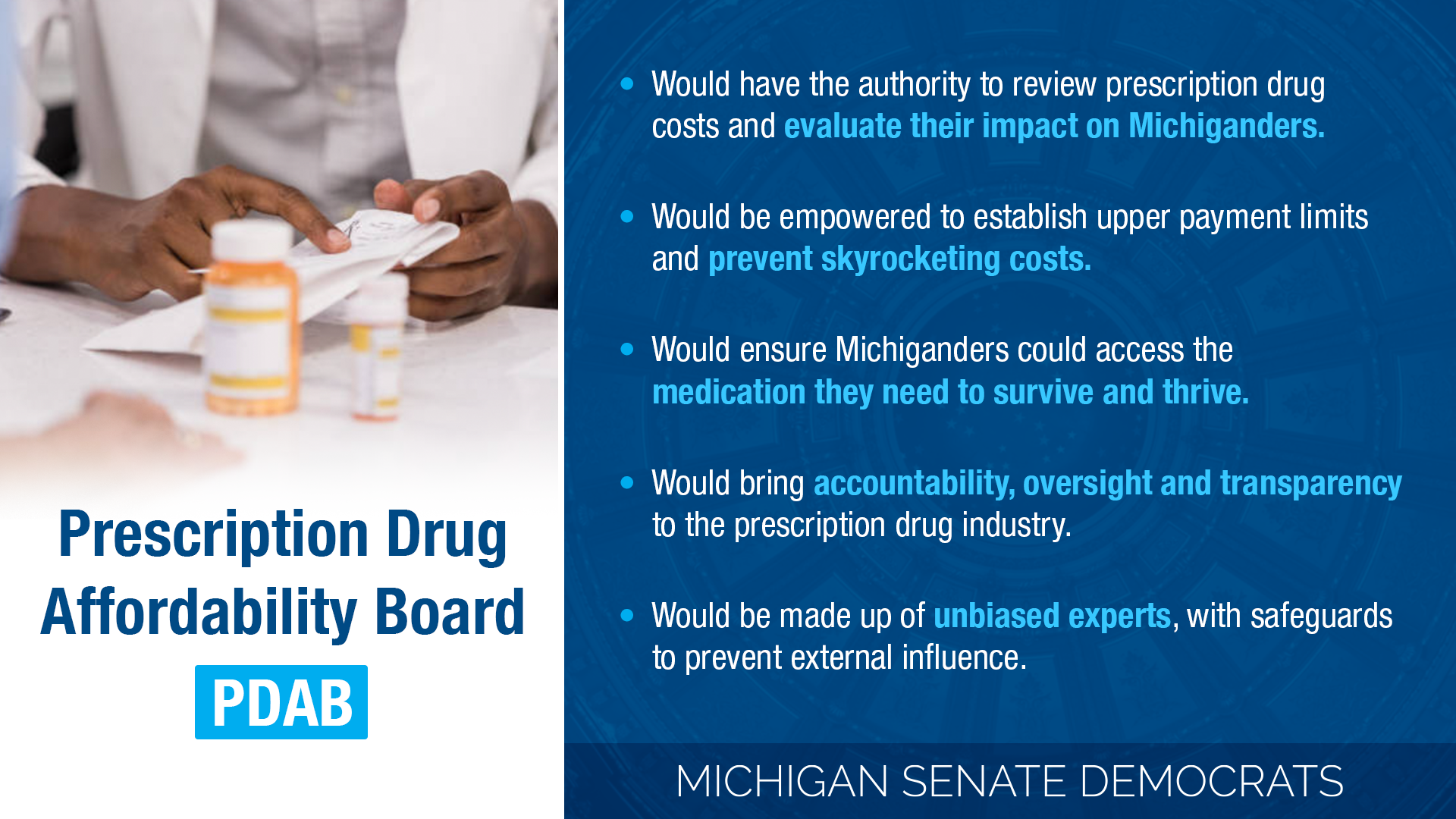Hello Neighbor,
I hope everyone is enjoying the start of fall! In this update, you’ll find information about our upcoming events, legislative updates and community resources.
Please do not hesitate to call my office at (855) 347-8003 or email SenSChang@senate.michigan.gov if you ever need assistance. As a reminder, we have our neighborhood service center open Monday through Friday at 11521 Joseph Campau, Hamtramck, MI 48212. Please call us at 313-922-6949 to make an appointment.
Sincerely,

Stephanie Chang
State Senator
Distict 3
Featured In This Newsletter
- Upcoming Events
- Legislative Update
- Community Resources
Upcoming Events
Coffee and Conversation in Hazel Park
WHEN: Friday, October 6, 2023, from 11:30 a.m. – 12:30 p.m.
WHERE: Hazel Park District Library, 123 E 9 Mile Rd, Hazel Park, MI 48030
Coffee and Conversation with Sen. Chang and Councilmember Quinn Wright
WHEN: Friday, October 20, 2023, from 11:00 a.m. – 12:00 p.m.
WHERE: Mia’s Bakery and Coffee Shop, 1413 W 14 Mile Rd, Madison Heights, MI 48071
Coffee and Conversation in Warren
WHEN: Monday, November 27, 2023, from 11:30 a.m. – 12:30 p.m.
WHERE: R&B Tea, 29200 Dequindre Rd Suite 5, Warren, MI 48092
Legislative Update
Water Affordability

This week, we introduced a transformative legislative package to address water affordability in Michigan.
Despite being surrounded by over 20 percent of the world’s fresh water, residential water rates have become unaffordable for too many Michigan families. Since 1980, average water costs, adjusted for inflation, have increased by 188 percent; families in urban areas and less densely populated communities have seen rates rise increase by up to 320 percent. According to Department of Health and Human Services (DHHS) data, over 317,000 Michiganders were behind on their water bills during the COVID-19 pandemic, highlighting the public health need in every corner of the state to have access to affordable water. While some local programs arose to help residents afford their water bills, the need for a statewide program in Michigan is glaring.
We are the Great Lakes State, surrounded by fresh water, but many Michiganders do not have the same access to water due to their financial situation. It should not matter how much money you have — every human being needs water to live. It has been a long journey working on the issue of water affordability since I took office in 2015. This term, I am proud that water providers, advocates and community partners from across the state have come together with shared goals of improving public health, providing more stability for our water systems and helping vulnerable Michigan families. Below is more information about the water affordability bill package:
- Affordability program: Sponsored by myself and Rep. Abraham Aiyash, Senate Bill 549 and House Bill 5088 create a low-income water residential affordability program within DHHS to ensure that water bills for low-income households do not exceed 3% of that household’s income, with tiers developed for lower thresholds based on percentage of the federal poverty limit. Water providers can opt to use the program developed by DHHS or administer their own program. DHHS and water providers would contract with third party organizations such as community action agencies or united way organizations to administer the program in their region. Eligible customers would be households who earn under 200% of the Federal Poverty Limit or are receiving any form of state or federal assistance. Low-income households with water leak issues may be eligible for plumbing repairs up to $2,500. The bill includes forgiveness for past-due arrearages up to $1500 in the first year, an additional $1500 in the second year and more if there is a demonstrated extreme need. A task force will be established to advise DHHS on implementation of the program and identify additional funding.
- Affordability fund: Sponsored by Rep. Donavan McKinney and Sen. Rosemary Bayer, Senate Bill 550 and House Bill 5089 create a statewide Low-Income Water Affordability Fund. The primary funding source would be a $2/meter monthly funding factor on water bills, and the fund would be allowed to take philanthropic donations. This fund is modeled after the Michigan Energy Assistance Program, for which every electric utility customer pays a small monthly fee to ensure that low-income households can get help with their energy bills. The MEAP program was created by bipartisan legislation during the Snyder administration.
- Shut-off protections: Sponsored by myself and Rep. Aiyash, Senate Bill 551 and House Bill 5090 provide protection from water shutoffs for Michiganders whose health conditions require access to water. It requires that a water provider notify a customer who is facing shutoff at least four times through a mailing, door knock, phone call and/or text message. It also protects a customer who is attempting to enroll in a water affordability plan or who makes a minimum good faith payment. The bill establishes a triage process with the customer to identify barriers to re-enroll the customer in an affordability plan.
- Tenant accounts: Sponsored by Rep. Mike McFall and Sen. Mary Cavanagh, Senate Bill 554 and House Bill 5091 allow a tenant to request their water bill be transferred to their own name.
- Decriminalizing water reconnection: Sponsored by Sen. Jeff Irwin and Sen. Paul Wojno, Senate Bills 552 and 553 and House Bill 5092 and 5093 decriminalize water reconnections after shutoff due to financial hardship, changing this act from a five-year felony to a civil infraction.
Help is currently available in some regions for water bills. For information about the Water Residential Assistance Program in the Great Lakes Water Authority region, visit glwater.org/assistance. For information about DWSD’s Lifeline program, go to waynemetro.org/dwsdlifeline or call 313-386-9727.
Taking Action to Address Rising Prescription Drug Costs

This week, the Senate passed Senate Bills 483–485, which would establish an independent Prescription Drug Affordability Board (PDAB) in Michigan. The PDAB aims to address this issue by implementing measures to regulate prescription drug costs, ensuring that essential medications are accessible and affordable for everyone.
In 2020, while the costs of many goods were rising, the prices of 500 prescription drugs in Michigan increased at a rate twice that of inflation. Michigan Senate Democrats are committed to alleviating the burden of prescription drug costs on Michigan residents and employers – and they are taking meaningful action to combat this persistent problem. I was proud to vote for these bills and am looking forward to seeing the work of the PDAB to reduce the cost of medication.
Improving Access to Care for Michigan Drivers
We all want to do what we can to help Michiganders save money and lower costs for people, including the cost of auto insurance. But that shouldn’t be done at the expense of people who have been severely injured and permanently disabled by an auto accident.
With the previous changes to our state’s auto insurance system, we’ve now had several years to reevaluate some of the intended consequences — and address some of the unintended ones. Recently, Senate Bills 530 and 531 were introduced to improve access to care for injured drivers. I was proud to cosponsor this legislation. The Senate Committee on Finance, Insurance and Consumer Protection recently had a hearing on these bills.
Read more about these bills here. In previous legislative terms, I introduced legislation that would address the problem of insurance companies using non-driving related factors like credit information and geographic area to determine one’s auto insurance rate, and I am looking forward to reintroducing legislation on this topic soon.
Community Resources
Resources for Michiganders Potentially Affected by the UAW Strike
It has been an honor to join the UAW Stand Up Strike picket line at the Stellantis facility in Warren, as well as the BCBSM picket line in Downtown Detroit in my district. For those who may be potentially impacted by the UAW strike, we want you to be prepared.
The Michigan Department of Labor and Economic Opportunity (LEO) has offered their assistance to all affected state business owners and workers — including the following resources:
- The Claimant Roadmap
- First-time filer coaching sessions
- UIA Community Connect
- Assistance with resetting account passwords
- Work Share
- Registration and Seeking Work Waiver
- Employer Filed Claims
To connect with your local Michigan Works! service center for career services, call (800) 285-WORKS (9675) or visit Michigan.gov/MichiganWorks.
For additional assistance, workers can schedule appointments at Michigan.gov/UIA or call Customer Service at (866) 500-0017.

